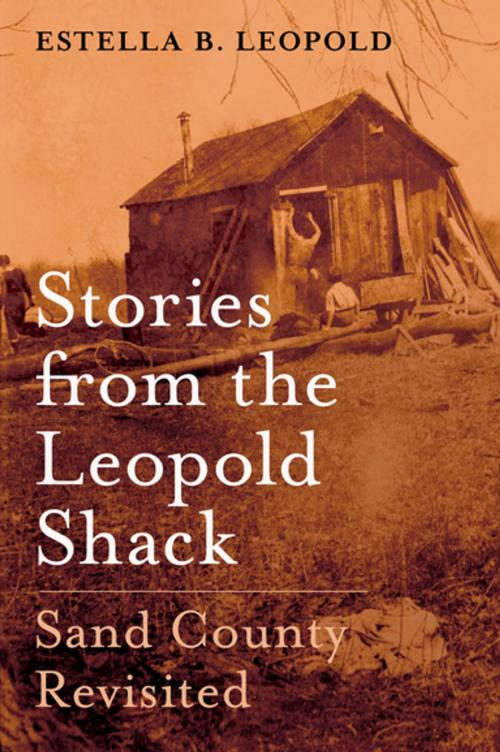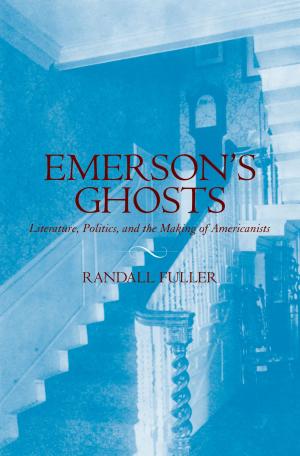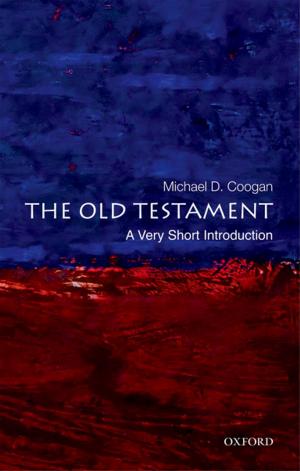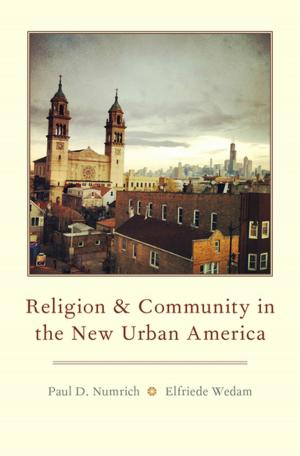Stories from the Leopold Shack
Sand County Revisited
Nonfiction, Science & Nature, Science, Biological Sciences, Ecology, Nature, Environment, Environmental Conservation & Protection| Author: | Estella B. Leopold | ISBN: | 9780190463243 |
| Publisher: | Oxford University Press | Publication: | May 13, 2016 |
| Imprint: | Oxford University Press | Language: | English |
| Author: | Estella B. Leopold |
| ISBN: | 9780190463243 |
| Publisher: | Oxford University Press |
| Publication: | May 13, 2016 |
| Imprint: | Oxford University Press |
| Language: | English |
In 1934, conservationist Aldo Leopold and his wife Estella bought a barn - the remnant of a farm - and surrounding lands in south-central Wisconsin. The entire Leopold clan - five children in all - worked together to put into practice Aldo's "land ethic," which involved ecological restoration and sustainability. In the process, they built more than a pleasant weekend getaway; they established a new way of relating to nature. In 1948, A Sand County Almanac was published, and it has become a beloved and foundational text of the conservation movement. Decades later, Estella B. Leopold, the youngest of the Leopold children - she was eight when they bought the land - now reflects on the "Shack," as they called the repurposed barn, and its inhabitants, and recalls with clear-eyed fondness the part it played in her and her siblings' burgeoning awareness of nature's miracles, season by season. In Stories from the Leopold Shack: Sand County Revisited, she unforgettably recalls the intensity of those days: the taste of fresh honey on sourdough pancakes; the trumpeting arrival of migrating Canada geese; the awesome power of river ice driven by currents - and each description is accompanied by stunning photographs by her brother, A. Carl Leopold. As the Leopolds worked to restore degraded farmland back to its original prairie and woods, they noted and celebrated all of the flora and fauna that came to share the Shack lands. As first evoked in A Sand County Almanac, and now revisited in Stories from the Leopold Shack, the Leopold family's efforts of ecological restoration were among the earliest in the United States, and their work, collectively and individually, continues to have a profound impact on land management and conservationism. All of Aldo and Estella Leopold's children went on to become distinguished scientists and to devote themselves to a life of conservation; their work continues through the Aldo Leopold Foundation. Estella B. Leopold book offers a voyage back to the place where it all began.
In 1934, conservationist Aldo Leopold and his wife Estella bought a barn - the remnant of a farm - and surrounding lands in south-central Wisconsin. The entire Leopold clan - five children in all - worked together to put into practice Aldo's "land ethic," which involved ecological restoration and sustainability. In the process, they built more than a pleasant weekend getaway; they established a new way of relating to nature. In 1948, A Sand County Almanac was published, and it has become a beloved and foundational text of the conservation movement. Decades later, Estella B. Leopold, the youngest of the Leopold children - she was eight when they bought the land - now reflects on the "Shack," as they called the repurposed barn, and its inhabitants, and recalls with clear-eyed fondness the part it played in her and her siblings' burgeoning awareness of nature's miracles, season by season. In Stories from the Leopold Shack: Sand County Revisited, she unforgettably recalls the intensity of those days: the taste of fresh honey on sourdough pancakes; the trumpeting arrival of migrating Canada geese; the awesome power of river ice driven by currents - and each description is accompanied by stunning photographs by her brother, A. Carl Leopold. As the Leopolds worked to restore degraded farmland back to its original prairie and woods, they noted and celebrated all of the flora and fauna that came to share the Shack lands. As first evoked in A Sand County Almanac, and now revisited in Stories from the Leopold Shack, the Leopold family's efforts of ecological restoration were among the earliest in the United States, and their work, collectively and individually, continues to have a profound impact on land management and conservationism. All of Aldo and Estella Leopold's children went on to become distinguished scientists and to devote themselves to a life of conservation; their work continues through the Aldo Leopold Foundation. Estella B. Leopold book offers a voyage back to the place where it all began.















